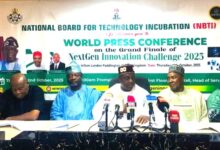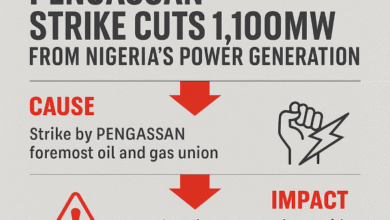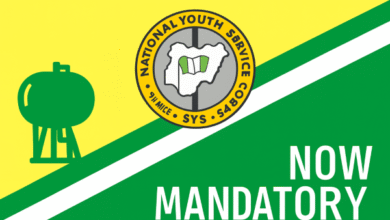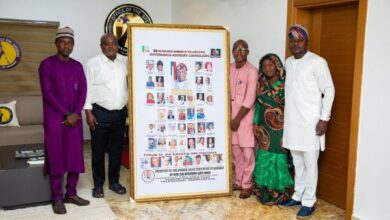Khalil Halilu Wins Global Honour at UK Parliament for Powering Africa’s Industrial Tech Renaissance
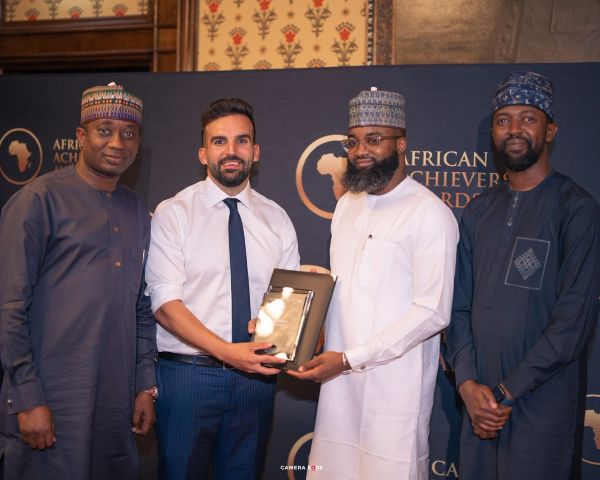
In a powerful endorsement of Nigeria’s tech-led industrial transformation, Mr. Khalil Suleiman Halilu, Executive Vice Chairman/CEO of the National Agency for Science and Engineering Infrastructure (NASENI), was honoured with the African Achievers Award 2025 at the historic House of Lords, UK Parliament, on July 11, 2025.
The award recognises Halilu’s groundbreaking work in repositioning NASENI as Africa’s leading innovation engine—championing technology transfer, indigenous manufacturing, and sustainable industrial development aligned with Nigeria’s Renewed Hope Agenda.
Africa’s Tech Renaissance Finds Its Vanguard
At just 35, Halilu has emerged as one of the most transformative tech and development leaders on the continent, engineering a quiet but profound shift at NASENI—from a bureaucratic agency into a strategic catalyst for industrial sovereignty.
In accepting the award, Halilu declared:
“Africa is not just rising. It is ready. At NASENI, we are turning ambition into access and ideas into industries.”
That statement reflects a broader continental ambition: one where Africa moves from technology consumer to technology creator, and from import dependency to homegrown industrial solutions.
Bridging Vision with Execution: NASENI’s Strategic Pivot
Under Halilu’s leadership, NASENI has launched an Accelerated Technology Transfer and Adaptation Strategy, targeting critical sectors such as:
- Clean energy systems (solar panels, lithium batteries)
- Agro-processing machinery for local value chains
- Transport technologies, including electric vehicles and drones
- Digital infrastructure and robotics for smart manufacturing
The agency has forged new partnerships across Europe, Asia, and Africa while building centres of excellence within Nigeria to incubate and scale indigenous technologies.
This approach directly aligns with the Federal Government’s industrialisation roadmap and offers tangible solutions to the AfCFTA era challenge: boosting intra-African production capacity to compete globally.
A Global Platform for African Innovation
The African Achievers Awards—now in its 15th year—is widely regarded as one of the most prestigious platforms spotlighting African leadership, innovation, and transformative change.
Hosted by Baroness Sandip Verma, Chancellor of the University of Roehampton and a respected voice in UK policy circles, the 2025 edition celebrated visionaries redefining Africa’s narrative across sectors. Messages from African dignitaries including King Misuzulu kaZwelithini, Queen Olori Atuwatse III, and Dr. Fatou Bensouda underscored the growing urgency for African solutions to African challenges.
Halilu’s award signals a new frontier: the rise of tech diplomacy and infrastructure innovation as key pillars of Africa’s future.
BRANDECONOMY INSIGHT: Why This Moment Matters
As Africa races to close infrastructure gaps, unlock climate-smart growth, and localise production, NASENI under Halilu represents a new class of public-sector disruptors—leaders who merge technological acumen with development strategy.
In an age where AI, green energy, and decentralised manufacturing are rewriting the rules of global competitiveness, Nigeria’s ability to produce rather than import could decide its place in the next global industrial revolution.
For investors, policymakers, and development partners, Halilu’s work offers a blueprint for action:
✅ Scale local manufacturing of essential technologies
✅ Link R&D to commercial production
✅ Support innovation through policy and finance
✅ Promote inclusive, sustainable development driven by youth and SMEs
“This recognition is a motivation to do more,” Halilu affirmed. “The future we seek is one we must build ourselves.”
Indeed, the time for Africa’s Industrial Tech Renaissance is now—and leaders like Khalil Halilu are showing the way.




